Throughout history, natural remedies have been a cornerstone of traditional medicine, and in Islamic culture, the teachings of the Prophet Muhammad (PBUH) have provided valuable guidance on health and wellness. The Sunnah, which refers to the practices and teachings of the Prophet, includes a wealth of knowledge about the use of herbal remedies. These natural treatments, derived from plants and herbs, offer a holistic approach to healing, emphasizing the connection between physical health and spiritual well-being.
In this article, we will explore some of the most notable herbal remedies from the Sunnah, highlighting their benefits and how they can be incorporated into modern health practices.
1. Black Seed (Nigella Sativa)
Black seed, also known as black cumin or habba sawda, is one of the most renowned herbal remedies mentioned in the Sunnah. The Prophet Muhammad (PBUH) is reported to have said, “Use this black seed regularly, because it has a cure for every disease except death” (Sahih Bukhari).
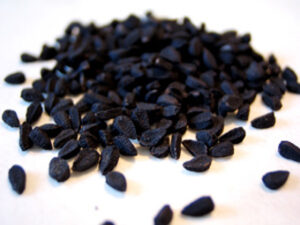
Benefits:
- Immune System Support: Black seed is known for its immune-boosting properties, thanks to its high content of antioxidants and essential fatty acids.
- Anti-inflammatory: It can help reduce inflammation in the body, making it beneficial for conditions like arthritis and asthma.
- Digestive Health: Black seed oil is often used to alleviate digestive issues, including bloating and indigestion.
Usage: Black seed oil can be consumed orally or applied topically. It can be added to food, such as yogurt or honey, or taken as a supplement.
2. Honey
Honey is another powerful remedy endorsed in the Sunnah. The Quran describes honey as a healing substance: “There comes forth from their bellies, a drink of varying colors wherein is healing for men” (Quran 16:69). The Prophet Muhammad (PBUH) also emphasized the therapeutic properties of honey.

Benefits:
- Antibacterial and Antiseptic: Honey has natural antibacterial properties, making it effective in treating wounds and preventing infections.
- Soothing Sore Throats: It is commonly used to soothe sore throats and alleviate coughs.
- Digestive Health: Honey can aid digestion and help with issues like constipation.
Usage: Honey can be consumed directly or mixed with other substances like water, milk, or herbal teas. It can also be applied topically to wounds and burns.
3. Olive Oil
Olive oil, a staple in Mediterranean and Middle Eastern diets, is highly valued in the Sunnah. The Prophet Muhammad (PBUH) said, “Eat olive oil and anoint yourselves with it, for it is from a blessed tree” (Tirmidhi).
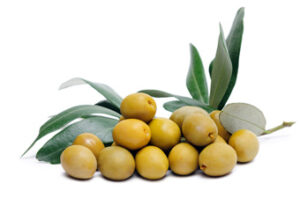
Benefits:
- Heart Health: Rich in monounsaturated fats, olive oil helps lower bad cholesterol levels and reduce the risk of heart disease.
- Skin and Hair Care: It is an excellent moisturizer for the skin and hair, providing hydration and nourishment.
- Anti-inflammatory: Olive oil contains anti-inflammatory compounds, which can help reduce inflammation in the body.
Usage: Olive oil can be used in cooking, as a salad dressing, or as a skin and hair moisturizer. Extra virgin olive oil is considered the best quality for both consumption and topical use.
4. Dates
Dates hold a special place in Islamic tradition, particularly during Ramadan. The Prophet Muhammad (PBUH) recommended breaking fast with dates, saying, “Break your fast with dates, or else with water, for it is pure” (Abu Dawood).
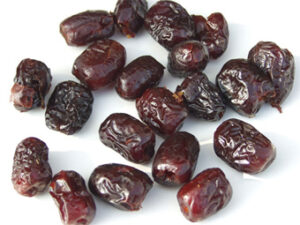
Benefits:
- Energy Boost: Dates are a natural source of sugar, providing a quick energy boost.
- Rich in Nutrients: They are packed with essential nutrients, including potassium, magnesium, and fiber.
- Digestive Health: Dates promote healthy digestion and can help alleviate constipation.
Usage: Dates can be eaten as a snack, added to smoothies, or used in cooking and baking. They are particularly popular during Ramadan for breaking the fast.
5. Senna (Senna Alexandrina)
Senna, known as sanna makki in Islamic tradition, is a well-known herbal laxative. The Prophet Muhammad (PBUH) mentioned its use for treating constipation.
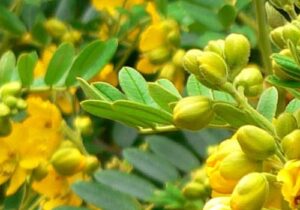
Benefits:
- Laxative Effect: Senna is commonly used to relieve constipation and cleanse the colon.
- Detoxification: It aids in detoxifying the body by promoting bowel movements.
Usage: Senna is often consumed as a tea. It should be used with caution and under the guidance of a healthcare professional, as excessive use can lead to dehydration and electrolyte imbalance.
6. Barley
Barley is another grain recommended in the Sunnah. The Prophet Muhammad (PBUH) advised the consumption of talbina, a porridge made from barley, for its soothing properties.
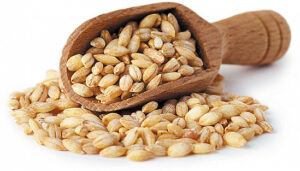
Benefits:
- Digestive Health: Barley is rich in dietary fiber, promoting healthy digestion and preventing constipation.
- Heart Health: It helps lower cholesterol levels, reducing the risk of heart disease.
- Nutrient-Rich: Barley is a good source of essential nutrients, including vitamins, minerals, and antioxidants.
Usage: Barley can be used to make talbina, soups, and stews. It can also be ground into flour and used in baking.
7. Fig
Figs are mentioned in the Quran and hadith for their health benefits. The Prophet Muhammad (PBUH) is reported to have said, “If I had to mention a fruit that descended from paradise, I would say this is it because the paradisiacal fruits do not have pits. Eat from these fruits for they prevent hemorrhoids, prevent piles and gout and help gout” (Tirmidhi).
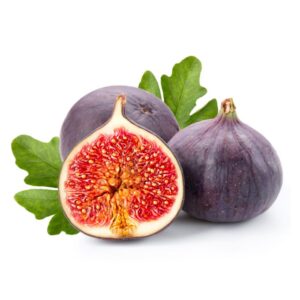
Benefits:
- Digestive Health: Figs are high in dietary fiber, promoting healthy digestion and preventing constipation.
- Rich in Nutrients: They are a good source of vitamins and minerals, including potassium, calcium, and magnesium.
- Antioxidant Properties: Figs contain antioxidants that help protect the body against free radicals.
Usage: Figs can be eaten fresh or dried. They can also be added to salads, desserts, and smoothies.
8. Garlic
Garlic is another powerful herb recognized in the Sunnah. The Prophet Muhammad (PBUH) mentioned the health benefits of garlic but advised moderation due to its strong odor.
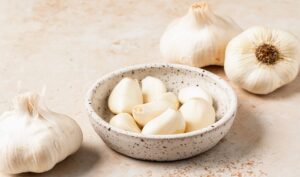
Benefits:
- Heart Health: Garlic is known for its ability to lower blood pressure and cholesterol levels.
- Antimicrobial Properties: It has natural antibacterial, antiviral, and antifungal properties.
- Immune System Support: Garlic can help boost the immune system, making it effective against colds and infections.
Usage: Garlic can be used fresh or cooked in a variety of dishes. It can also be consumed as a supplement in the form of capsules or tablets.
9. Cumin (Cuminum Cyminum)
Cumin is a popular spice in Middle Eastern cuisine and is also mentioned in the Sunnah. It is known for its digestive and medicinal properties.
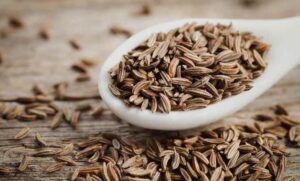
Benefits:
- Digestive Health: Cumin aids in digestion and can help alleviate symptoms of indigestion, bloating, and gas.
- Rich in Nutrients: It contains iron, essential for maintaining healthy blood and energy levels.
- Anti-inflammatory: Cumin has anti-inflammatory properties that can help reduce inflammation in the body.
Usage: Cumin can be used as a spice in cooking, added to dishes like soups, stews, and rice. It can also be consumed as a tea.
10. Fenugreek (Trigonella Foenum-Graecum)
Fenugreek, known as hulba in Arabic, is another herb recommended in the Sunnah. It is praised for its health benefits and nutritional value.
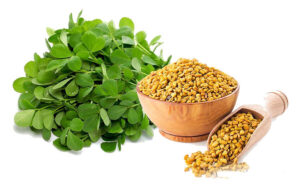
Benefits:
- Lactation Support: Fenugreek is commonly used to increase milk production in breastfeeding women.
- Digestive Health: It can help improve digestion and alleviate symptoms of indigestion.
- Blood Sugar Control: Fenugreek may help regulate blood sugar levels, making it beneficial for people with diabetes.
Usage: Fenugreek seeds can be soaked in water and consumed, or they can be ground into a powder and added to dishes. Fenugreek tea is also a popular option.
Incorporating Herbal Remedies from the Sunnah in Modern Life
The herbal remedies from the Sunnah offer a holistic approach to health and wellness, emphasizing the importance of natural healing and the balance between physical and spiritual well-being. While these remedies have been used for centuries, they remain relevant in modern times, offering natural alternatives to synthetic medications.
However, it is essential to approach these remedies with caution and consult with healthcare professionals, especially if you have existing health conditions or are taking medications. Additionally, while these remedies are beneficial, they should not replace conventional medical treatments when necessary.
Incorporating these herbal remedies into your daily routine can be as simple as adding them to your diet, using them in cooking, or preparing herbal teas. By embracing the wisdom of the Sunnah and the natural bounty that Allah has provided, we can enhance our health and well-being in a holistic and spiritually fulfilling way.
Conclusion
The herbal remedies from the Sunnah offer a treasure trove of natural treatments that have been cherished for centuries. From black seed to honey, olive oil to dates, these remedies provide numerous health benefits and can be easily incorporated into daily life. As we seek to maintain our health and well-being, let us remember the timeless wisdom of the Sunnah and the healing power of nature. By doing so, we not only nourish our bodies but also strengthen our connection to the teachings of the Prophet Muhammad (PBUH) and the divine blessings of Allah.





